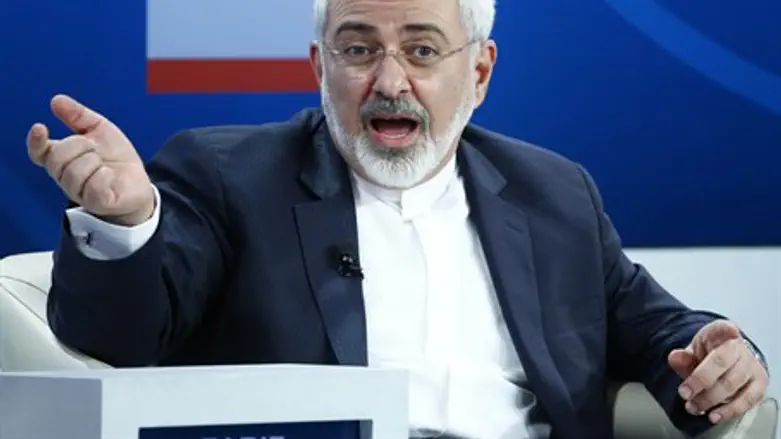
Iranian Foreign Minister Mohammad Javad Zarif said on Tuesday his country will resume talks with world powers on a final nuclear agreement on April 21 and is ready to take "irreversible steps" if the West does the same, AFP reports.
"My team, the assistant to (EU foreign policy chief Federica) Mogherini and the other representatives of the 5+1 (global powers) will meet next Tuesday to begin drafting the text," Zarif told a conference in Madrid.
He did not say where the talks would take place but later gave more details about his country's position.
"This is the framework under which we will operate with the 5+1 group: (there will be) irreversible steps on the Iranian side as long as their side takes irreversible steps. It is a very balanced approach," said Zarif, according to AFP.
He was referring to the six Western powers -- Britain, China, France, Russia, the United States and Germany -- who have been negotiating with Iran to end the 12-year standoff over its nuclear program.
The six countries made a major breakthrough at talks with Iran on April 2 by agreeing on the parameters for a final deal to scale back its nuclear capabilities.
The negotiators, however, still have a series of technical issues to resolve by a June 30 deadline for a final deal, including the steps for lifting sanctions imposed on Iran.
"Iran will take all the measures that are required in the initial phase, all the measures," Zarif said on Tuesday, as he spoke during a joint news conference with his Spanish counterpart Jose Manuel Garcia-Margallo.
"If we are going to reduce the number of centrifuges we will do that in the first days, we are also called to redesign the Arak reactors into another hardwater reactor, we will do that in the initial steps," he added, according to AFP.
Western powers want Iran to re-design a planned research reactor at Arak to cut its potential output of plutonium, one of the materials needed to produce a nuclear bomb.
Iran denies Western claims that it is seeking to make a nuclear bomb.
The framework deal reached earlier this month would leave all of Iran's nuclear facilities intact, and limit the rate of its uranium enrichment for a ten-year window. President Barack Obama has admitted that after the limitations of the deal wear off, Iran will be able to reach a "zero" breakout time by 2028, meaning it could produce nuclear weapons immediately whenever it wanted to.
Top Iranian officials last week said they will start using advanced IR-8 centrifuges that are 20-times as effective as standard ones as soon as a deal is reached, meaning they would be able to produce a nuclear arsenal in a rapid timeframe.
Iranian President Hassan Rouhani has demanded that sanctions be lifted as soon as any deal is signed.
Zarif said that all the elements "required for the lifting of sanctions will take place in the first phase."
The P5+1 have said sanctions will only be gradually eased and want a mechanism to ensure they can be swiftly reimposed if Iran breaks its word.
Zarif said he expected Washington to lift the sanctions.
"On the American side, we behold the government of the United States to be responsible," he said, according to AFP, adding that obtaining approval from Congress was "their problem".
"As far as we are concerned, they have to terminate the implementation of those sanctions and that is their legal obligation," he said.
